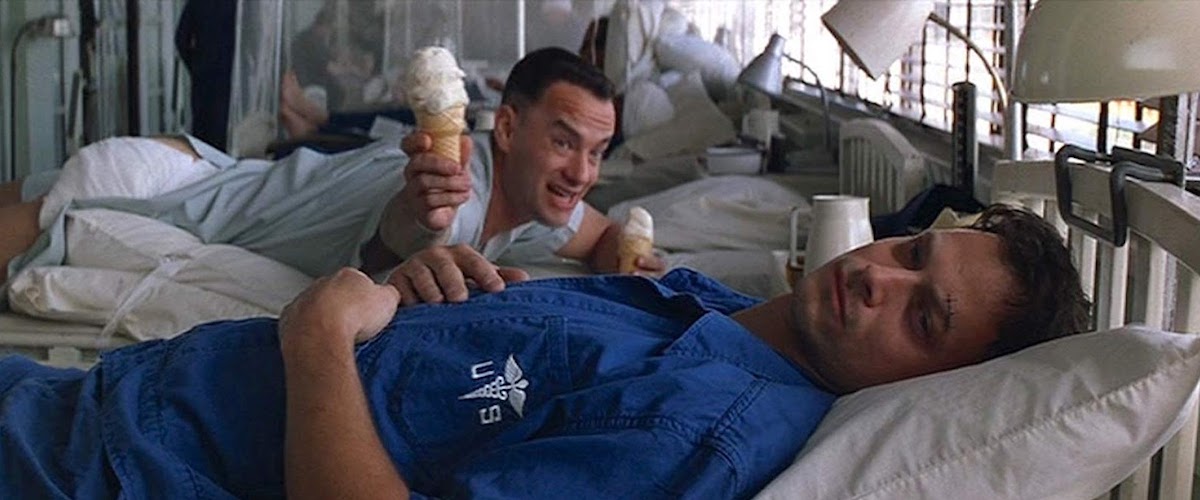
22 (More) Adaptations Better Than the Books They’re Based On
We Asked, You Answered
Last month, the Literary Hub staff put together a list of a few film and TV adaptations that we (gasp, pearl-clutch, etc.) liked better than the books they were based on. We asked our readers for their own suggestions, and boy did you all deliver. Here are just a few of the top-notch adaptations we missed in our first go-around, according to Literary Hub readers:

Forrest Gump (1994)
directed by Robert Zemeckis; written by Eric Roth
based on: Forrest Gump by Winston Groom (1986)
“Forrest Gump, needs to be on this list for sure. That is one of the most disgusting books I have ever read. Forrest is certainly NOT the heartwarming every man played by Tom Hanks.” (Debbie Donella)
“Forrest Gump, fabulous movie, probably the dumbest book I’ve ever read. The only book that I’ve ever thrown in the trash, where it belongs. Where did that wonderful movie come from.” (cathy hurd)
“How in the world do you write this without mention of what might arguably be both the best movie adaptation amongst the list and worst book from amongst the list from which a movie was adapted? Forrest Gump should be number one here by a mile.” (Gheedorah)

How to Train Your Dragon (2010)
directed by Chris Sanders and Dean DeBlois; screenplay by Will Davies, Chris Sanders and Dean DeBlois
based on: How to Train Your Dragon by Cressida Cowell (2003)
“I would definitely include How to Train Your Dragon. Toothless in the books is whiny and annoying and even David Tennant narrating it couldn’t make me enjoy the read/listen. The movies, though, are simply beautiful and moving and funny.” (Snow)
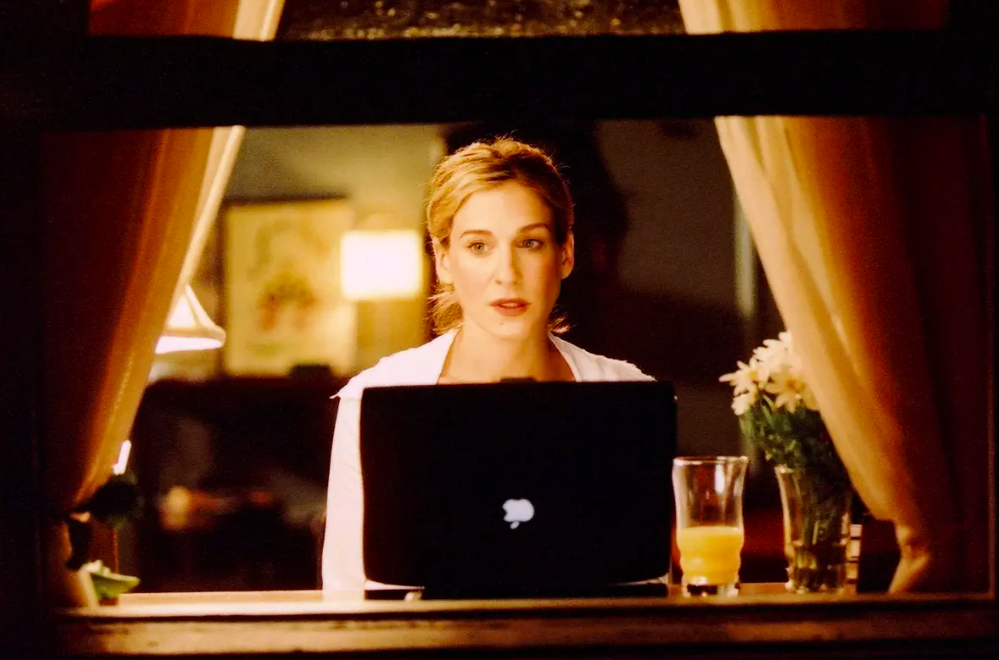
Sex and the City (1998-2004)
created by Darren Star
based on: Sex and the City by Candace Bushnell (1996)
“My candidate is Sex and the City. The TV series is pure alchemy, transforming cheese into (TV) gold. I found Candace Bushnell’s book on which the series is based on a thrift store. Cost 1€ or 1.50€. Even at that it was overpriced. Seriously, that book is bad and I am in awe whoever managed to make the amazing series out of this dreck.” (Jens Raab)
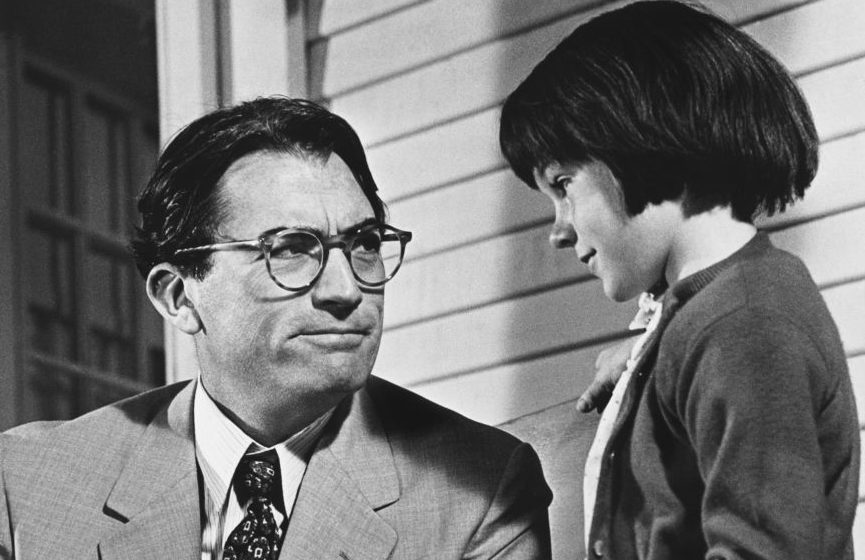
To Kill a Mockingbird (1963)
directed by Robert Mulligan; screenplay by Horton Foote
based on: To Kill a Mockingbird by Harper Lee (1960)
“Shocked that no one has mentioned 1963 To Kill a Mockingbird. Beautiful Oscar nominated black and white cinematography. Great acting by all including best actor award for Gregory Peck. Best music nomination by Elmer Bernstein, Best writing award to Horton Foote.” (Eric Mustard)

The Graduate (1967)
directed by Mike Nichols; written by Buck Henry and Calder Willingham
based on: The Graduate by Charles Webb (1963)
“I found Mike Nichols The Graduate to be more fully realized emotionally than the book. Benjamin in the book is a little bit of a jerk and the movie is funnier, sadder, and a perfect expression of its time.” (cynesthesia)
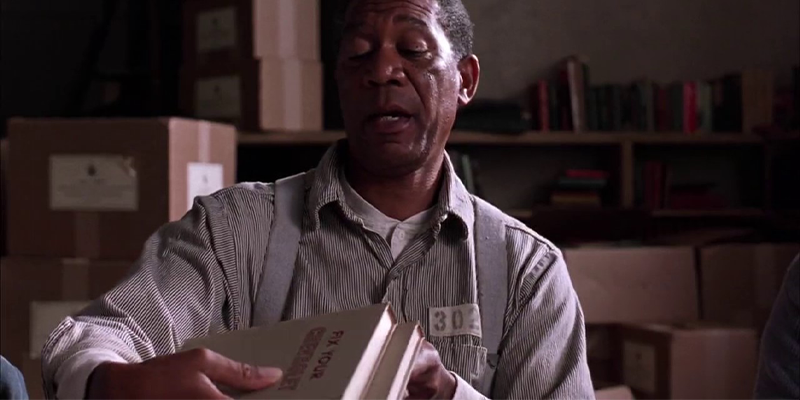
The Shawshank Redemption
written and directed by Frank Darabont
based on: Rita Hayworth and Shawshank Redemption by Stephen King (1982)
“I’m astonished to not see The Shawshank Redemption on this list. Much as I enjoyed reading the novella, I was blown away by the film.” (Mark Harrison)
“Shawshank Redemption ?!?” (Cliff)
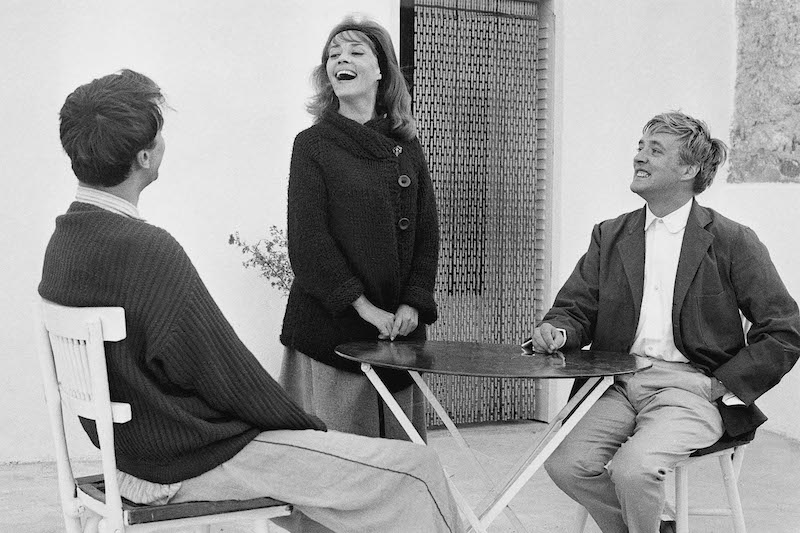
Jules et Jim (1962)
directed by François Truffaut; written by François Truffaut and Jean Gruault
based on: Jules et Jim by Henri-Pierre Roché (1953)
“The greatest difference in quality I’ve ever experienced between a novel and a filmed version of it is between Henri-Pierre Roché’s semi-autobiographical 1953 novel Jules et Jim, and Truffaut’s 1962 lyrical masterpiece starring Jeanne Moreau. The novel is badly written juvenile pulp; the film, with music by Georges Delerue, is marvelous. I’ve probably seen it 10 times, and could watch it many more.” (Donald M Wright)
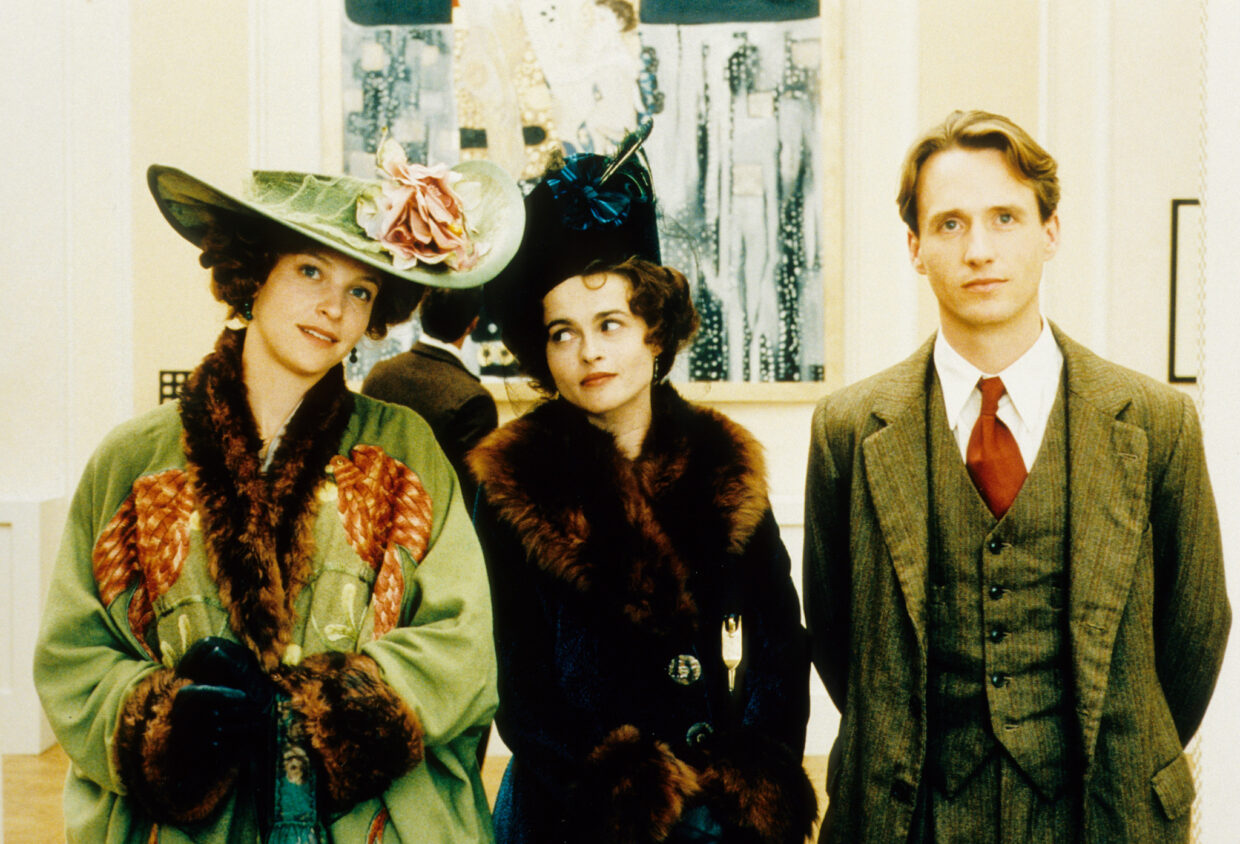
The Wings of the Dove (1997)
directed by Iain Softley; screenplay by Hossein Amini
based on: The Wings of the Dove by Henry James (1902)
“It’s probably something akin to literary blasphemy for me to even think it, but I’d consider the 1997 film of Henry James’s The Wings of the Dove (with Helena Bonham Carter, Charlotte Rampling, and Elizabeth McGovern) much superior to the novel, with its turgid writing style, which I’d summarize in two words as “fustian bloat.” Some passages are impenetrable—for example, on one page four women are in a room talking, and he refers to them with pronouns “she” and “her”—with absolutely no indication to which character the pronouns are referring; and sometimes in the same sentence “she” or “her” refers to two different characters! Conversations are marked more by navel-gazing and unspoken rumination than by actual decipherable content. He repeatedly uses pretentious phrases like “in fine” (instead of “finally”—and goes on and on anyway), “betimes” (instead of “early”), “colloquy” (instead of “conversation”), and “bethought himself” (instead of “considered” or “reflected”). He’s even condescending towards his own characters, referring to them as “the good woman,” “the good lady,” “our young man,” “our young friends” (they’re not “mine” simply by your referring to them as such, Henry)! And then he partitions the novel into books, e.g., “Book Third,” “Book Fourth.” What does he think he’s writing—the Books of Moses?! Finally the novel starts to get interesting on about p. 350. (And I love gothic literature usually!) Harumph.” (Donald M Wright)
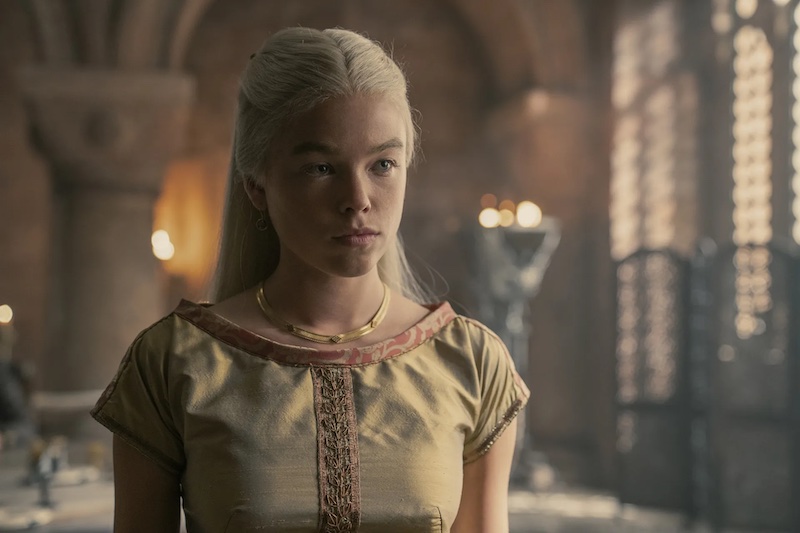
House of the Dragon (2022-present)
created by George R. R. Martin and Ryan Condal
based on: Fire & Blood by George R.R. Martin (2018)
House of the Dragon is better than its source material (the relevant parts of Fire & Blood) – though this is a special case as the source material is written as pseudo-history that reads like a very long Wikipedia article from a bunch of unreliable, biased and contradicting sources and an equally unreliable narrator (fictional in-universe historian). George R.R. Martin intended it to show “the unreliability of history” in his own words. So thr source material is good in its own way, as an exercise for the reader, but as an actual narrative, the show is much superior, taking the character sketches and plot points with an occasional quote from the book and developing them into full blown complex characters you get emotionally attached to, scenes and dialogue and relationships, while talking inspiration from Martin’s style in his actual novels from the same series, A Song of Ice and Fire. And it has done it really well so far.” (Ivana Cvetanovic)
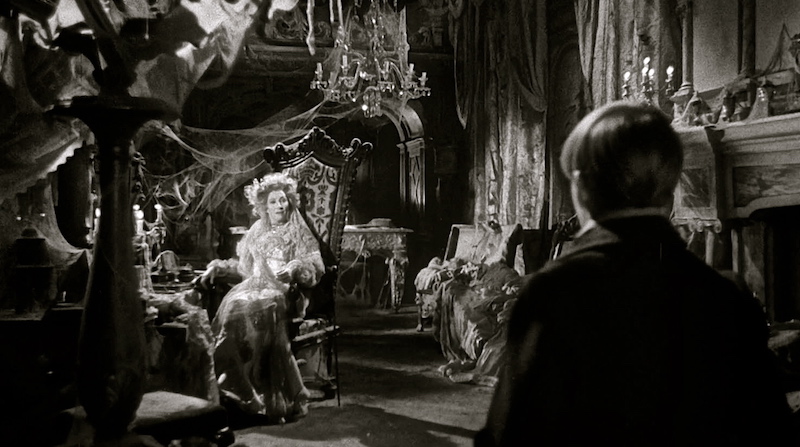
Great Expectations (1946)
directed by David Lean; written by David Lean, Anthony Havelock-Allan, and Ronald Neame
based on: Great Expectations by Charles Dickens (1861)
“David Lean’s version of Great Expectations keeps all of Dicken’s atmosphere and characterizations and most of the plot while removing the flab, of which there is a lot. The movie also cuts the number of coincidences down from completely ridiculous to only mildly ridiculous.” (Wendy Caster)

Slaughterhouse-Five (1972)
directed by George Roy Hill; written by Stephen Geller
based on: Slaughterhouse-Five by Kurt Vonnegut (1969)
“I’d like to nominate Slaughterhouse-Five. Yes, the book is an absolute classic, but the movie has the harder task – *showing* the viewer what it is to be unstuck in time. They do this with smash cuts, visuals in one scene with sound from the next, camera pans revealing the scene takes place earlier/later than expected, etc. Somehow they accomplished this without the viewer losing the thread(s) of the story. It’s an incredible accomplishment that deserves to be known far better than it is.” (Patrick Robbins)
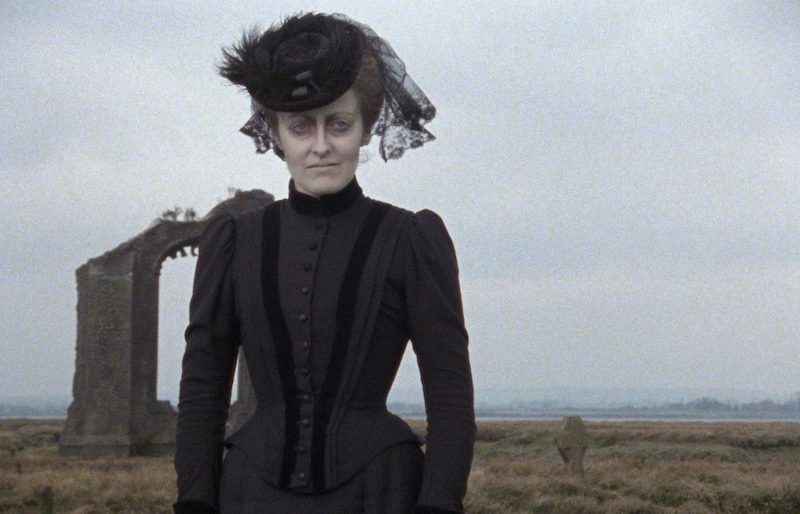
The Woman in Black (1989)
directed by Herbert Wise; written by Nigel Kneale
based on: The Woman in Black by Susan Hill (1983)
“The Woman in Black, novel by Susan Hill. The book was more of a generic ghost story, somewhat simple, and seemed determined to make the setting as generic as possible. The reader was barely aware it was set in Britain. It could have been anywhere. And it wasn’t very scary at all, except for what happens at the very end of the book. The movie, however, used the settings much better, and best of all, was actually SCARY throughout most of it.” (Paul Dyer)

The Painted Veil (2006)
directed by John Curran; screenplay by Ron Nyswaner
based on: The Painted Veil by W. Somerset Maugham (1925)
“The Painted Veil movie took Maugham’s rather one-dimensional characters and filled them with life and redemption. With Edward Norton and Naomi Watts giving emotional performances and the stunning imagery in the film equaling films by Ivory Merchant, it is one of my favorites.” (Tabitha Thompson)
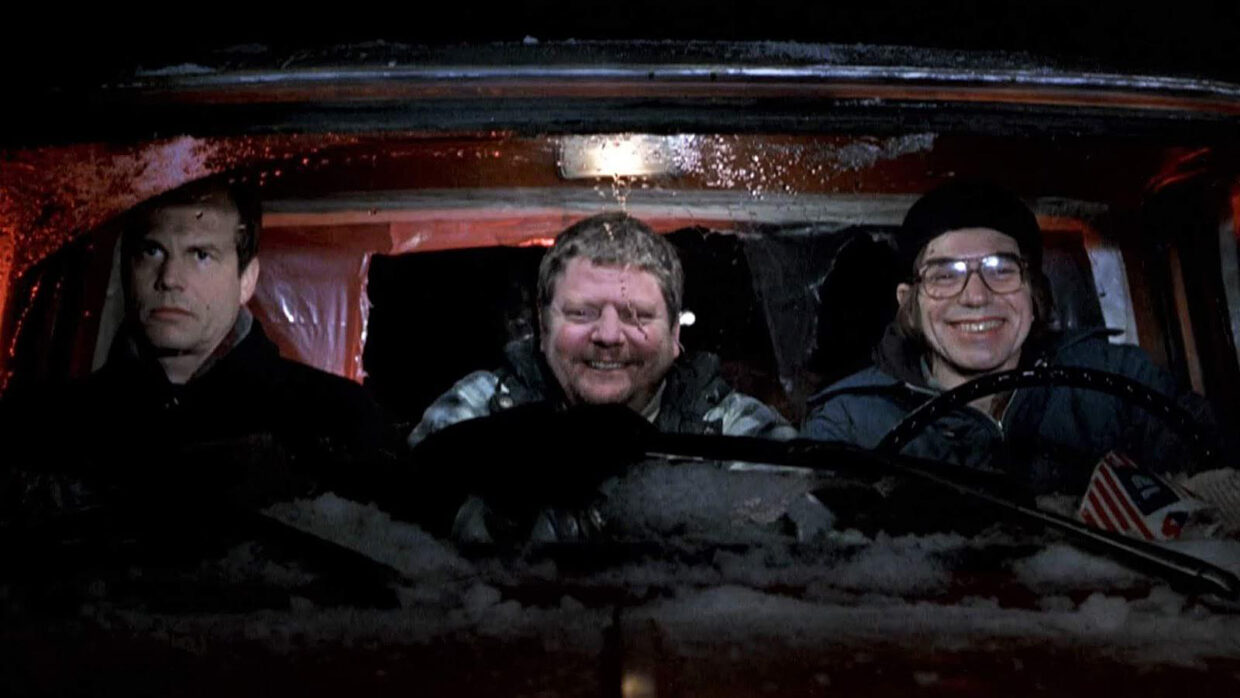
A Simple Plan (1998)
directed by Sam Raimi; screenplay by Scott Smith
based on: A Simple Plan by Scott Smith (1993)
Add A Simple Plan. The ending of Scott Smith’s book works as a metaphor for the book’s themes but isn’t cinematic and doesn’t resolve the characters’ relationships. The Raimi film throws out that ending. Much better. (Rich Elias)

The Silence of the Lambs (1991)
directed by Jonathan Demme; screenplay by Ted Tally
based on: The Silence of the Lambs by Thomas Harris (1988)
“Ditto Silence of the Lambs. Harris has a long section jumping between Clarice knocking on doors in Ohio and an FBI raid in Indiana. It’s a novel trying to do what a movie does better, and which Demme’s movie brings off extremely well.” (Rich Elias)

Arrival (2016)
directed by Denis Villeneuve; adapted by Eric Heisserer
based on: “Story of Your Life” by Ted Chiang (1998)
“I nominate Arrival as being much better than Ted Chiang’s short story/novella, “Story of Your Life.” I believe Chiang also helped with the screenplay, so that’s interesting too. “Story” was wonderful, but abstruse—all about the actual language of the aliens and how it changes things. It is startlingly original work, but not a lot of emotion. The movie is atmospheric and doesn’t rely on the heuristics of language to move the plot forward. Both the story and the movie are great in and of themselves, telling different tales. But “Arrival” has more heft, in my opinion. To read the story and see the movie, is an exercise in — wow, what vision to create this full-dimensional movie from the much more flat story.” (Sharon SuperTenn)
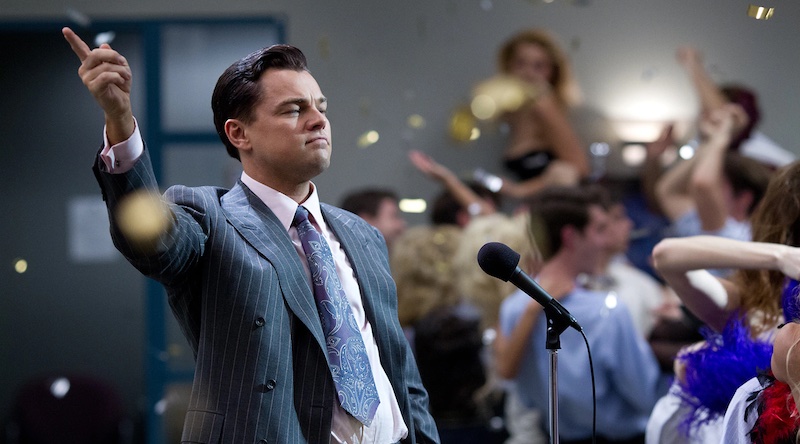
The Wolf of Wall Street (2013)
directed by Martin Scorsese; written by Terence Winter
based on: The Wolf of Wall Street by Jordan Belfort (2007)
“This should come as a surprise to no one, but: Wolf of Wall Street. The book, much like its “protagonist”, is atrocious. But the story in Martin Scorsese and Leo DiCaprio’s hands is *chef’s kiss*.” (KG(B))

Jurassic Park (1993)
directed by Steven Spielberg; screenplay by Michael Crichton and David Koepp
based on: Jurassic Park by Michael Crichton (1990)
“The film Jurassic Park is quite a bit superior to the book. The characters in the book scarcely rise to the level of one-dimensional stick figures, about whom you couldn’t care less. The film, at least, they become two-dimensional and your investment in them becomes more genuine.” (Gary Herstein)
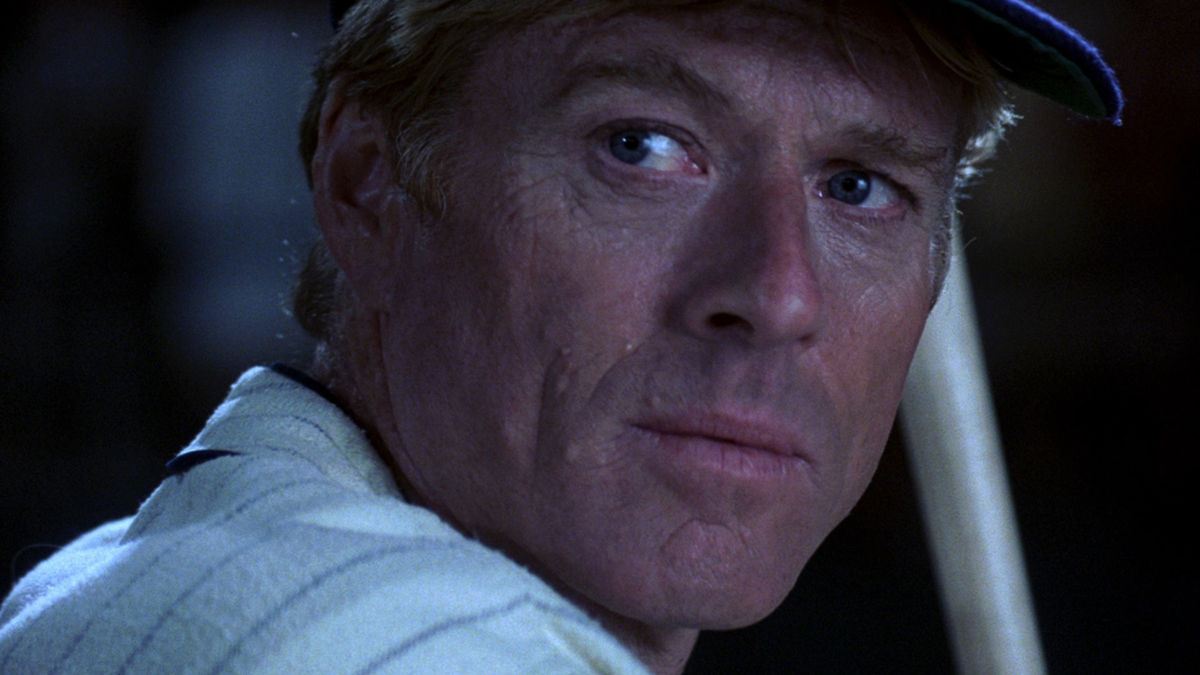
The Natural (1984)
directed by Barry Levinson; screenplay by Roger Towne and Phil Dusenberry
based on: The Natural by Bernard Malamud (1952)
“Oh my. . .so. . .I think we would be remiss to leave out The Natural (1984) based on Bernard Malamud’s 1952 book. For one, Robert Redford is so much better looking than Malamud. For two. . .uh, Robert Redford and one of the greatest endings of all time that never fails to bring a tear. The cinematography and Randy Newman’s score. And, of course, the ending was changed because the Malamud was such a downer.” (Floyd Garrett)
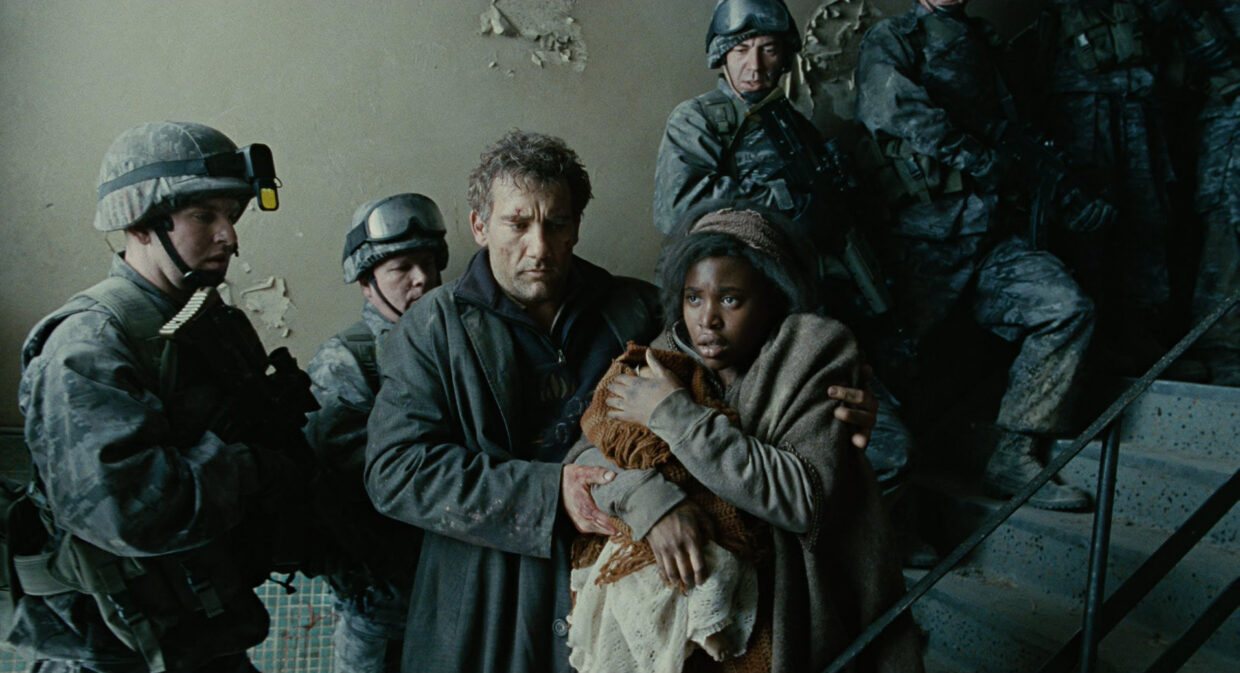
Children of Men (2006)
directed by Alfonso Cuarón; screenplay by Alfonso Cuarón, Timothy J. Sexton, David Arata, Mark Fergus, Hawk Ostby
based on: Children of Men by P.D. James (1992)
“Alfonso Cuarón’s film adaptation of P.D. James’s Children of Men is a vast improvement on the book in my opinion. It takes the basic premise of the novel but focuses sharply on a few individuals and draws wonderful performances from Clive Owen, Julianne Moore, Chiwetel Ejiofor and Michael Caine.” (Maria McKenzie)
“I could not agree more. The novel’s premise is great but I felt it didn’t capitalise on it in the way the film does. Children of Men is one of my favourite films of all time whereas the novel probably wouldn’t be in my top 100.” (GHB)
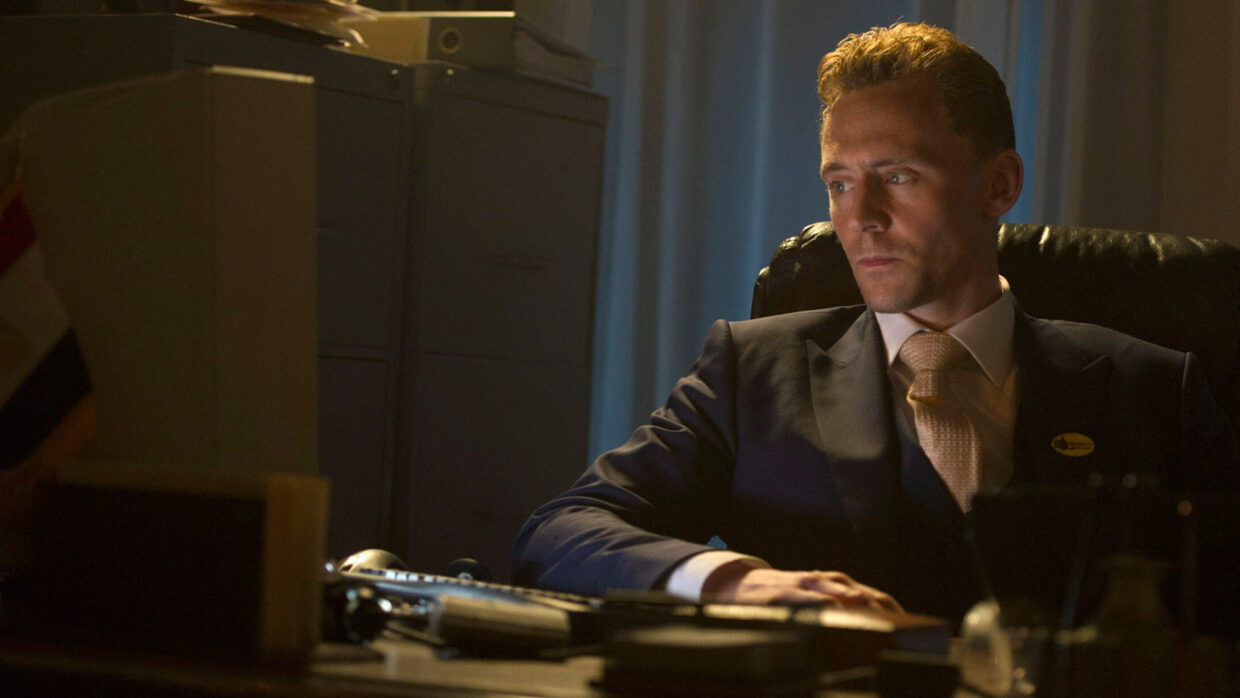
The Night Manager (2016-present)
directed by Susanne Bier; written by David Farr
based on: The Night Manager by John le Carré (1993)
“The Night Manager TV series is way better than John le Carré’s book. It adds another two-thirds of original stuff to his story; I bet le Carré thought afterwards: ‘I wish I had written that book instead of the one I wrote.'” (Evert)
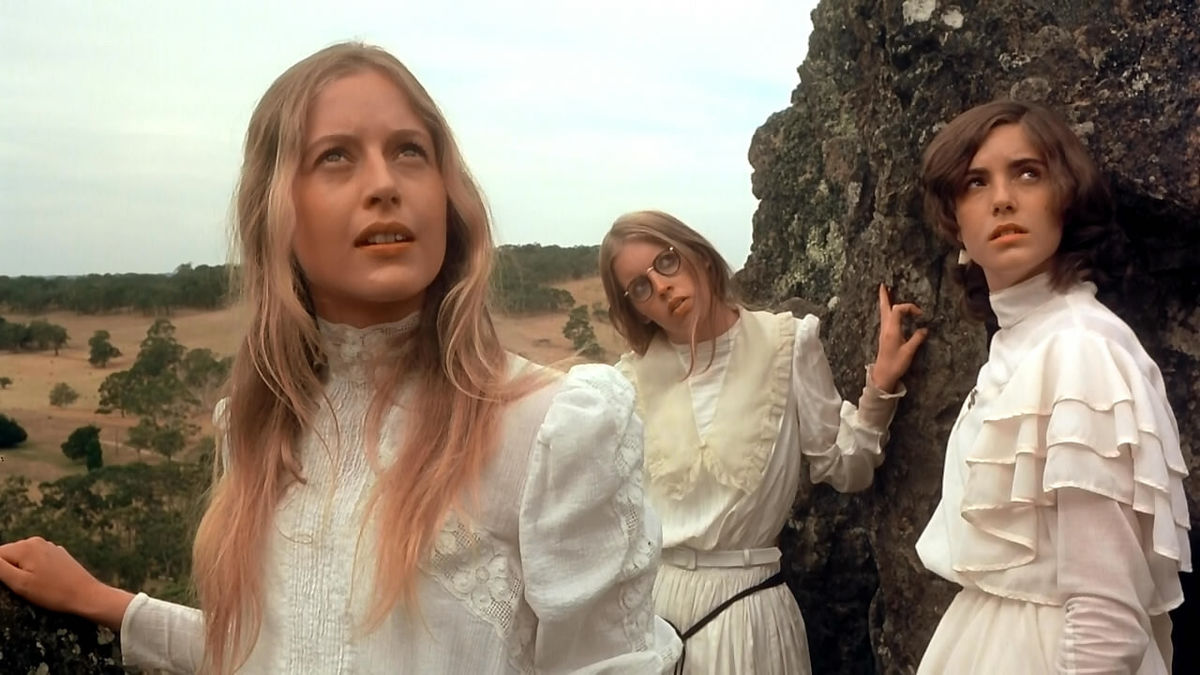
Picnic at Hanging Rock (1975)
directed by Peter Weir; screenplay by Cliff Green
based on: Picnic at Hanging Rock by Joan Lindsay (1967)
“Picnic at Hanging Rock also belongs on this list I think! The book is good too, but I don’t think any book can capture the ethereal vagueness of this story the way the movie does.” (Lamplight)



















